Academic and Public Education
Educational Opportunities With Wildlife Futures
The Wildlife Futures Program educates members of the general public, wildlife agency staff, and veterinary students through in-person and virtual training sessions, presentations, and workshops.
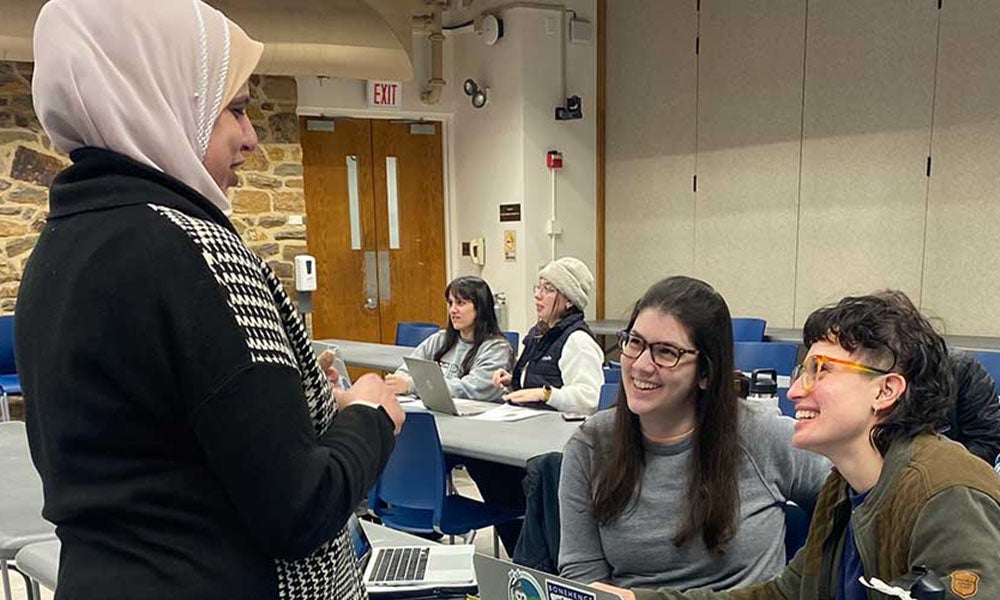
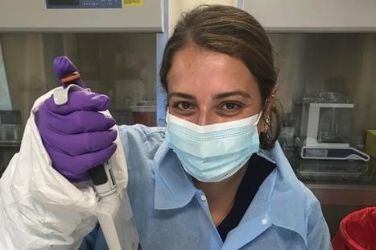
Wildlife Curriculum for Penn Vet Students
Many Wildlife Futures team members are Penn Vet standing or adjunct faculty who incorporate wildlife health into the veterinary curriculum. Beginning in their first year, Penn Vet students receive Wildlife Futures taught hands-on laboratory instruction in examining and stabilizing native wildlife. In their second and third years, students attend lectures and labs on wildlife toxicology, wildlife pathology, and wildlife diseases from Wildlife Futures experts. Third- and fourth- year students may participate in a more intensive wildlife diseases and diagnostics course. First- and second-year students may also elect to complete capstone experiences through the WFP. These nine-day sessions provide an immersive opportunity to experience wildlife diagnostics firsthand.
Summer Research Positions for Penn Vet Students
We offer paid summer research positions to Penn Vet students as well as undergraduate students. These students receive training in various program areas and provide important contributions to our ongoing research projects.
Any Penn Vet students interested in research opportunities are encouraged to email us at wildlifefutures@vet.upenn.edu.
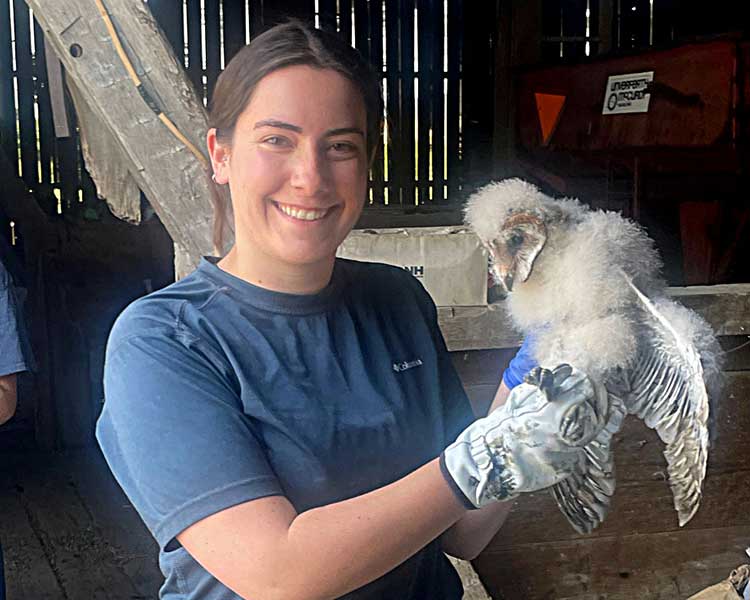
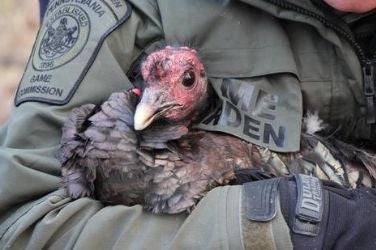
Wildlife Training for the Pennsylvania Game Commission
The Wildlife Futures Program helps the Pennsylvania Game Commission ensure that their team members are up to date on wildlife health issues and best techniques and practices for working with wildlife. We assist with organized training events and spend time in the field with biologists to ensure that they and other field staff are proficient with sample collection for health and disease testing. We are also developing a video training series on wildlife handling, disease response, and biosafety procedures, for wardens and deputies who are often the first line of response to wildlife health concerns in Pennsylvania.
Outreach Education for the Public
Our field teams provide direct public education on a daily basis as they respond to calls about sick or dead wildlife. In addition, they often give presentations to outdoor sporting clubs, schools, and community groups about safely interacting with wildlife, awareness of wildlife diseases, and what everyone can do to prevent disease spread. Our research staff shares our findings with a broad audience through conference presentations and publications in professional journals and other outlets.
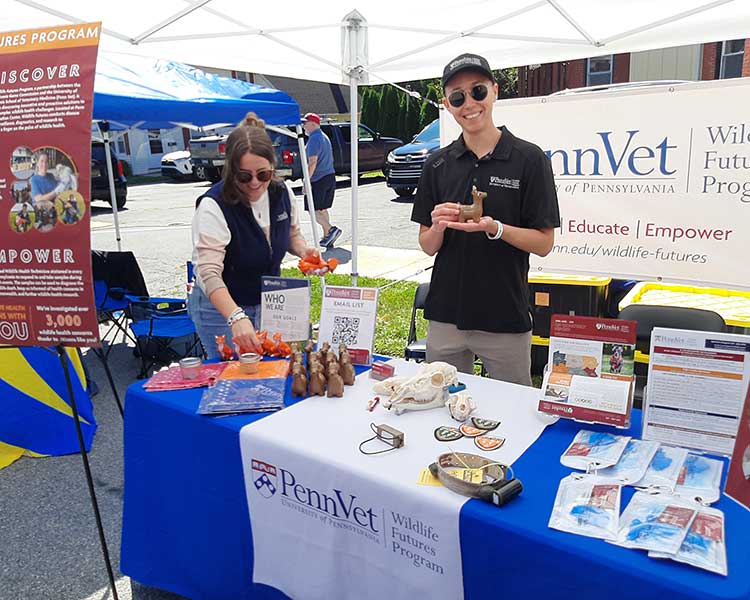
Wildlife Futures
382 West Street Road
Kennett Square, PA 19348
